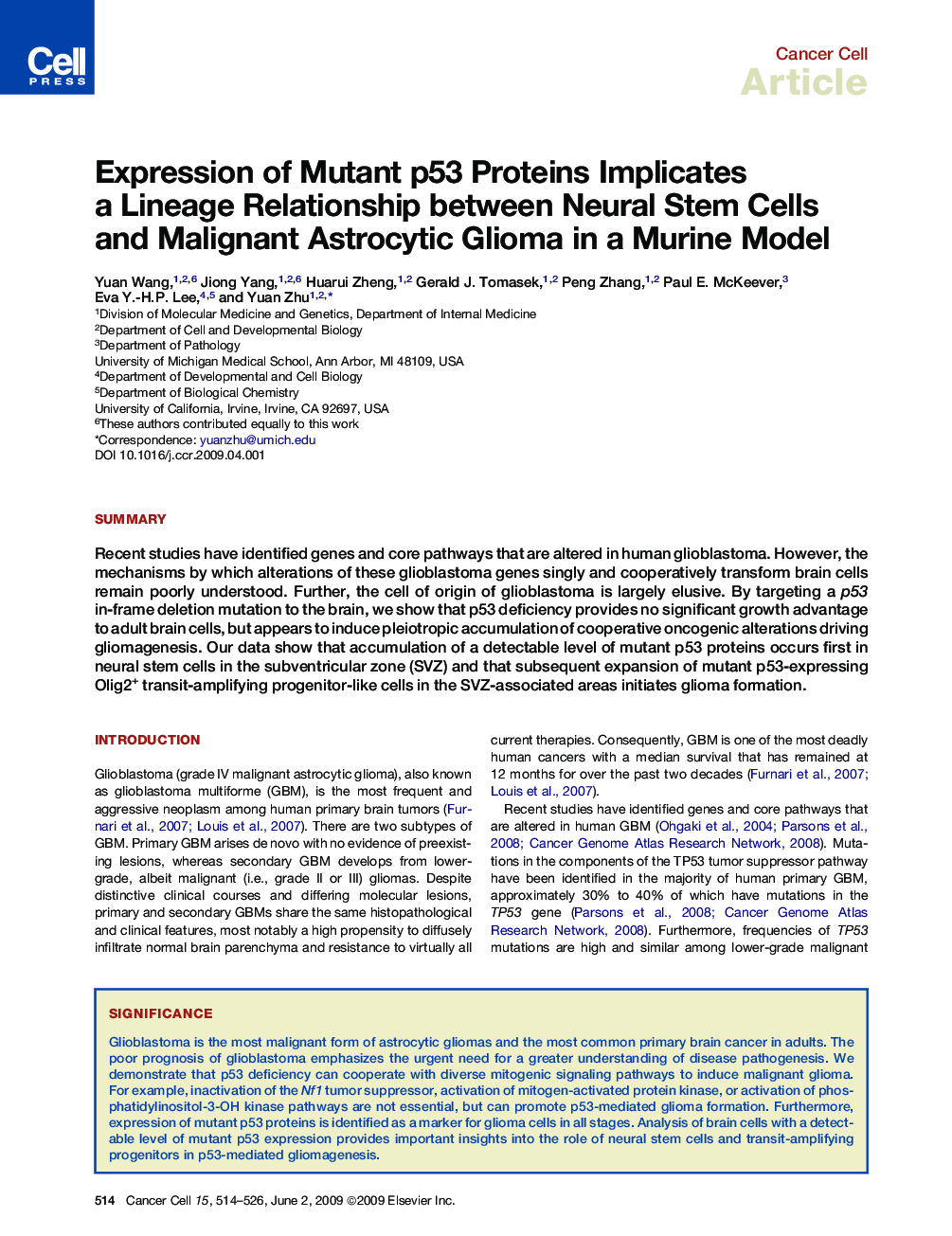| Article ID | Journal | Published Year | Pages | File Type |
|---|---|---|---|---|
| 2108368 | Cancer Cell | 2009 | 13 Pages |
SummaryRecent studies have identified genes and core pathways that are altered in human glioblastoma. However, the mechanisms by which alterations of these glioblastoma genes singly and cooperatively transform brain cells remain poorly understood. Further, the cell of origin of glioblastoma is largely elusive. By targeting a p53 in-frame deletion mutation to the brain, we show that p53 deficiency provides no significant growth advantage to adult brain cells, but appears to induce pleiotropic accumulation of cooperative oncogenic alterations driving gliomagenesis. Our data show that accumulation of a detectable level of mutant p53 proteins occurs first in neural stem cells in the subventricular zone (SVZ) and that subsequent expansion of mutant p53-expressing Olig2+ transit-amplifying progenitor-like cells in the SVZ-associated areas initiates glioma formation.
